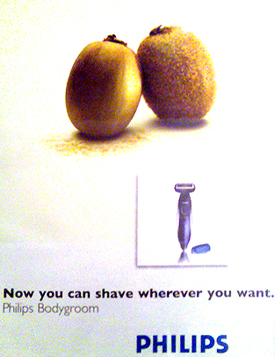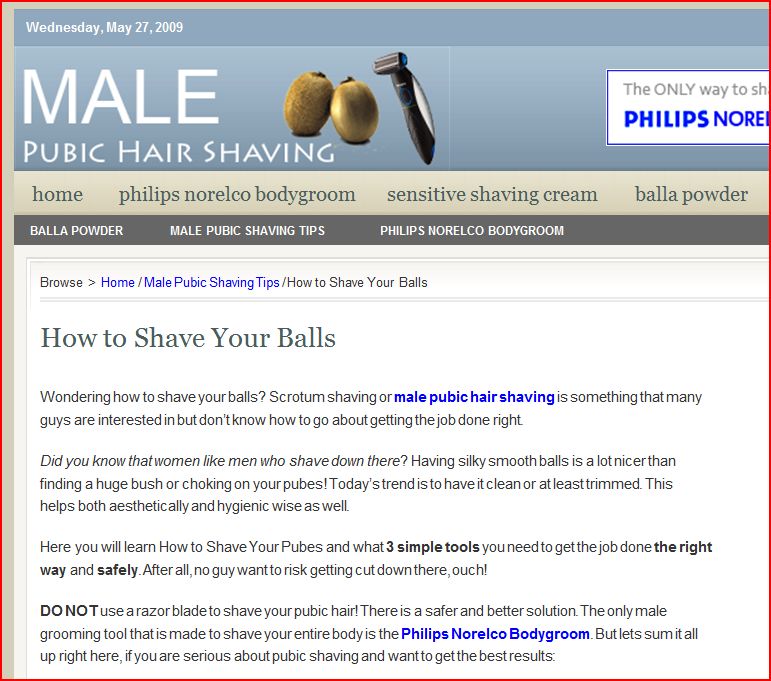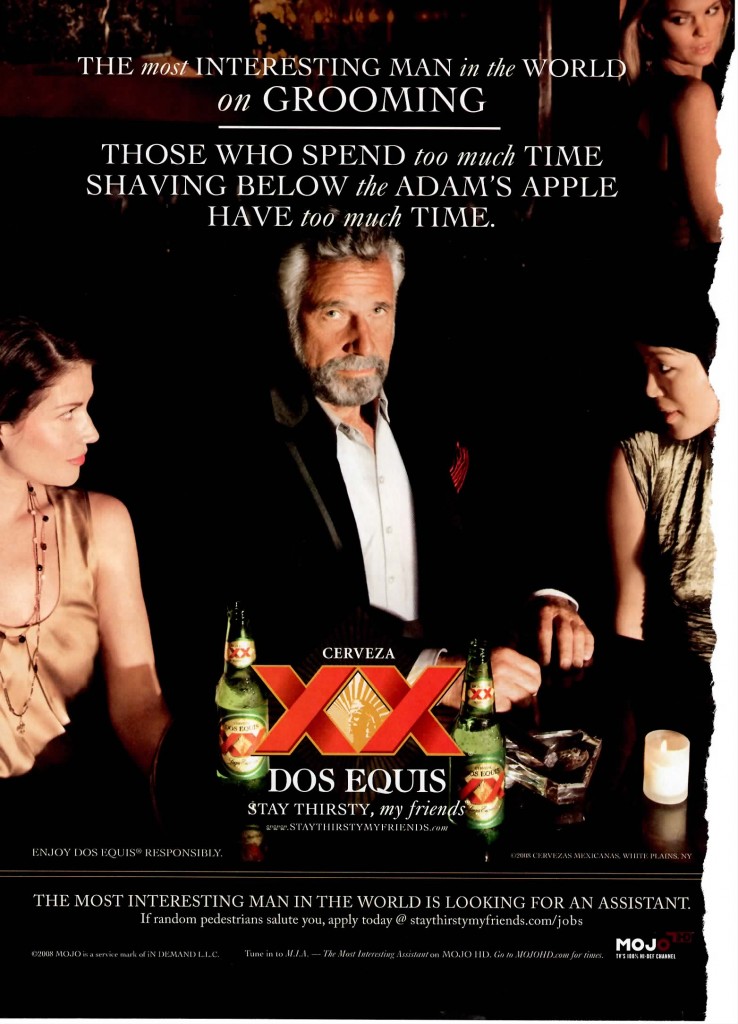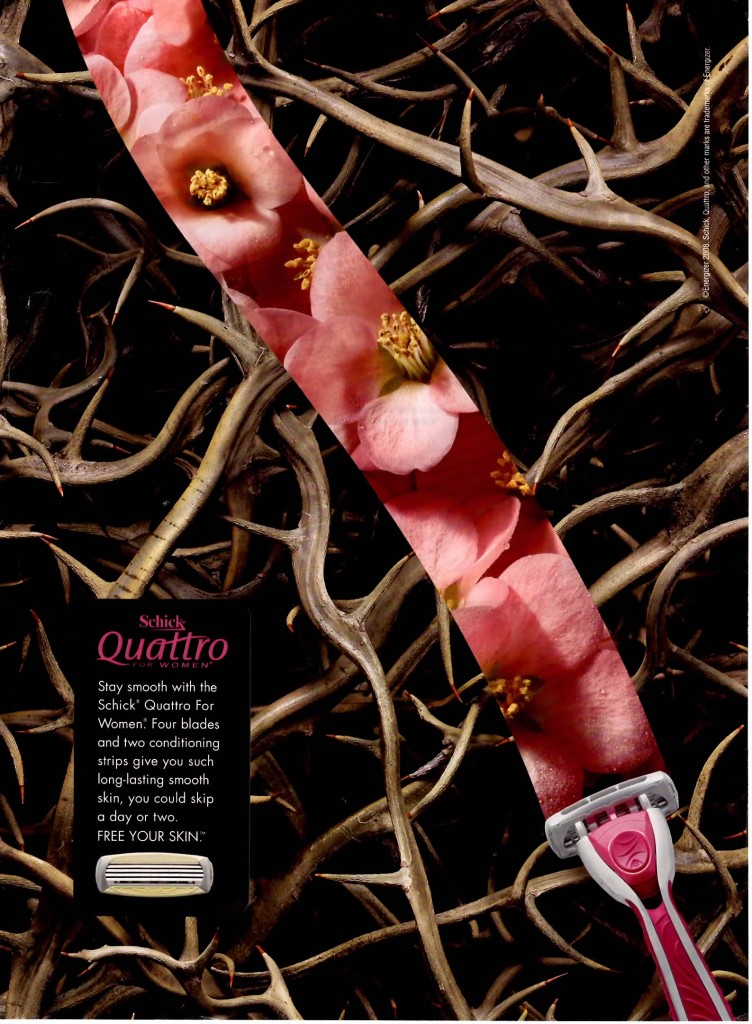Jay L. sent in this Brylcreem commercial from the 1950s, in which men are warned that if they don’t have well-styled, healthy hair, they won’t get the girl next door:
Notice the creepy cartoon characters at about 0:48. Jay says,
He is obviously turned on by the girl, so he elbows the tube, which ejaculates a white blob that falls onto his head. The girl returns to run her hands through it.
Here’s another commercial that tells men if they don’t use Brylcreem, they’ll actually disgust women and make them run away:
Also see this Just for Men commercial that tells men grey hair will hurt them on the dating scene, this one about career insecurity, and this one that equates grey hair with a loss of masculine virility.







